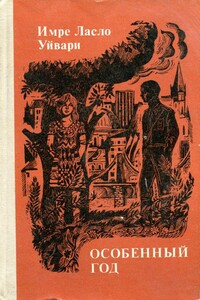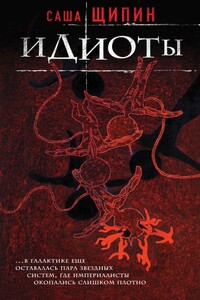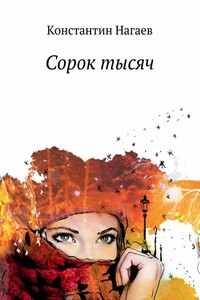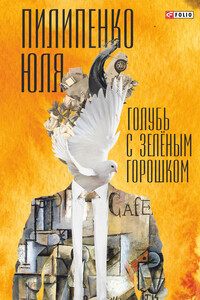36 Arguments for the Existence of God - [43]
“Why didn’t we set the guy straight? Shouldn’t we have defended Professor Klapper?”
“There’s no point. These guys are ideologues. Their worldviews would crumble if you got them to give up their positivistic, nihilistic scientism. The English departments are mired in political ideology, and the philosophers are buried in scientistic ideology. Jonas is the sole defender of the faith.”
“I still think we should have defended him. It doesn’t seem honorable. I feel like we’ve let Professor Klapper down. It just isn’t right to let him be smeared that way. It’s like letting truth be smeared.”
“It’s okay.” Gideon laughed. He laughed for a while, and he laughed hard, and Cass figured it was, as Gideon was likely to say, the beer that was laughing. “We don’t need to set guys like that straight,” he finally said. “What we need is a new pitcher. You look like you could use a little protein, too. I’ll wait a few minutes-I don’t want to run into that Blockhead again-and then I’ll go get you a nice nourishing plate of jerky.”
It was reassuring to Cass that Gideon wasn’t ruffled by the philosophy student’s riff. Cass had felt a cold, numbing shock of disbelief go through him as Jordan Block defamed Jonas Elijah Klapper. But Gideon’s explanation made sense. Of course, if Professor Klapper had picked up the lit taper of philosophy after the professional philosophers had tried to stamp it out with scorn and scientism, they would resent him and try to make him a laughingstock. Jonas Elijah Klapper often remarked that professionalism was the last refuge of the scoundrel.
IX The Argument from the Eternity of Irony
Though the Blockheads might scoff, the undeniable truth was that Klapper’s standing in the world was as high as, if not higher than, it had ever been. As proof, he had been invited to deliver one of the most prestigious endowed lectureships in the civilized world, the Prufrock Lecture in the Humanities and Human Values at Harvard University.
Cass had gone over to Cambridge by himself, taking the two-car commuter train to Porter Square. He hadn’t yet seen Harvard, and he’d wanted to get there early to wander around the iconic institution of higher learning.
Cass had loved the whole feel of the place. The self-enclosed Yard, with the homey iron fence around it as if to protect grazing cattle; the freshman dormitories framing the green in brotherly, and now sisterly, communion; the understated Puritan architecture, the prim red brick with white trim, content to be as it is without ostentation; and then, in another frame of self-containment, side by side with the communing dormitories, there was another open expanse, anchored at one end by the neoclassical grandeur of the Widener Library and at the other by the nobility of the Memorial Church, the simplicity of the red-brick-and-white-trim theme taking on an inspired transcendence with that soaring white spire. This scene, this Yard, this fenced oasis of American genius, is where Jonas Elijah Klapper belonged.
Professor Klapper had touched on this circumstance himself, toward the end of last week’s seminar-devoted to On the Genealogy of Morals, Nietz sche’s most incandescent work, Klapper had said, and he himself had burned with a rare flame, prolonging the seminar by twenty minutes, which happened seldom, since teaching was, for him, an all-consuming fire in which he was, as he put it, the korban, the burnt offering, so that by the end of the two-and-a-half-hour seminar he would be utterly spent, instantaneously passing from inferno to ash. But for Nietzsche there had been an extra twenty minutes of divine afflatus, which had carried Jonas Elijah Klapper to an inspired recitation of the famous words from Götzen-Dämmerung, or Twilight of the Idols: “Our true experiences are not at all garrulous. They could not communicate themselves even if they tried. Whatever we have words for, that is already dead in our hearts. In all talk there is a grain of contempt.” He had, appropriately, gone silent, staring off beyond the head of the tallest person, who was, of course, Cass, and then, all at once, Jonas Elijah Klapper had crumpled, the bulk of his upper body slumping, his massive head’s precipitous descent fortuitously broken by his open palm, into which his face was then buried, and he had sat prostrate and immobile, which could be alarming if one hadn’t seen it before, but they all had, and they waited until he would recover himself and would, with the weariness of the woe-besotted world, gather up his papers and books and shuffle out, only this time he had bestirred himself to remind the class of the upcoming Prufrock Lecture and, more specifically, of the literary illustriousness of the hall where the lecture would take place, “since, my cherubim”-his endearments to the class had grown ever fonder as the semester had progressed-“the masterful Henry James had chosen that precise stage for the pivotal scene in The Bostonians.
“I thought for your amusement I would provide you with a snippet of James’s rendering of Memorial Hall to deepen your own apperception when you attend on Tuesday coming. I shall recite, as is my wont, from memory:

В книге рассказывается история главного героя, который сталкивается с различными проблемами и препятствиями на протяжении всего своего путешествия. По пути он встречает множество второстепенных персонажей, которые играют важные роли в истории. Благодаря опыту главного героя книга исследует такие темы, как любовь, потеря, надежда и стойкость. По мере того, как главный герой преодолевает свои трудности, он усваивает ценные уроки жизни и растет как личность.

Настоящая книга целиком посвящена будням современной венгерской Народной армии. В романе «Особенный год» автор рассказывает о событиях одного года из жизни стрелковой роты, повествует о том, как формируются характеры солдат, как складывается коллектив. Повседневный ратный труд небольшого, но сплоченного воинского коллектива предстает перед читателем нелегким, но важным и полезным. И. Уйвари, сам опытный офицер-воспитатель, со знанием дела пишет о жизни и службе венгерских воинов, показывает суровую романтику армейских будней. Книга рассчитана на широкий круг читателей.

Боги катаются на лыжах, пришельцы работают в бизнес-центрах, а люди ищут потерянный рай — в офисах, похожих на пещеры с сокровищами, в космосе или просто в своих снах. В мире рассказов Саши Щипина правду сложно отделить от вымысла, но сказочные декорации часто скрывают за собой печальную реальность. Герои Щипина продолжают верить в чудо — пусть даже в собственных глазах они выглядят полными идиотами.

Роман «Деревянные волки» — произведение, которое сработано на стыке реализма и мистики. Но все же, оно настолько заземлено тонкостями реальных событий, что без особого труда можно поверить в существование невидимого волка, от имени которого происходит повествование, который «охраняет» главного героя, передвигаясь за ним во времени и пространстве. Этот особый взгляд с неопределенной точки придает обыденным события (рождение, любовь, смерть) необъяснимый колорит — и уже не удивляют рассказы о том, что после смерти мы некоторое время можем видеть себя со стороны и очень многое понимать совсем по-другому.

Есть такая избитая уже фраза «блюз простого человека», но тем не менее, придётся ее повторить. Книга 40 000 – это и есть тот самый блюз. Без претензии на духовные раскопки или поколенческую трагедию. Но именно этим книга и интересна – нахождением важного и в простых вещах, в повседневности, которая оказывается отнюдь не всепожирающей бытовухой, а жизнью, в которой есть место для радости.

«Голубь с зеленым горошком» — это роман, сочетающий в себе разнообразие жанров. Любовь и приключения, история и искусство, Париж и великолепная Мадейра. Одна случайно забытая в женевском аэропорту книга, которая объединит две совершенно разные жизни……Май 2010 года. Раннее утро. Музей современного искусства, Париж. Заспанная охрана в недоумении смотрит на стену, на которой покоятся пять пустых рам. В этот момент по бульвару Сен-Жермен спокойно идет человек с картиной Пабло Пикассо под курткой. У него свой четкий план, но судьба внесет свои коррективы.